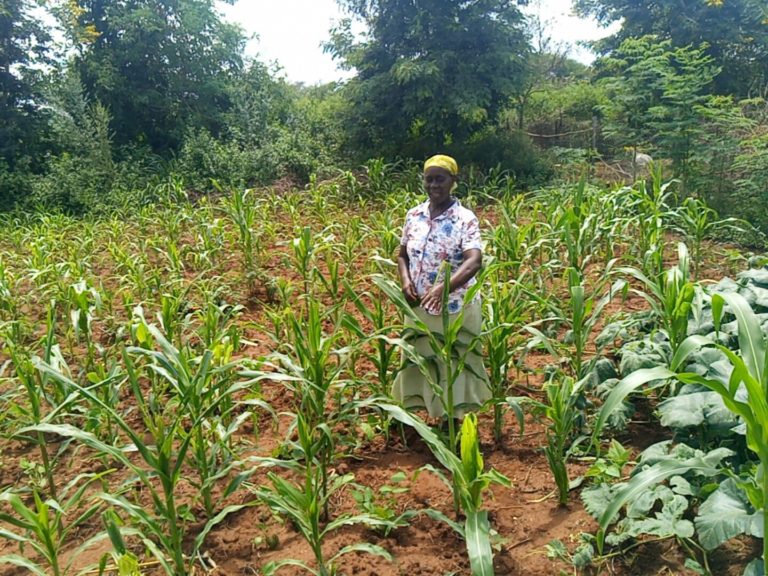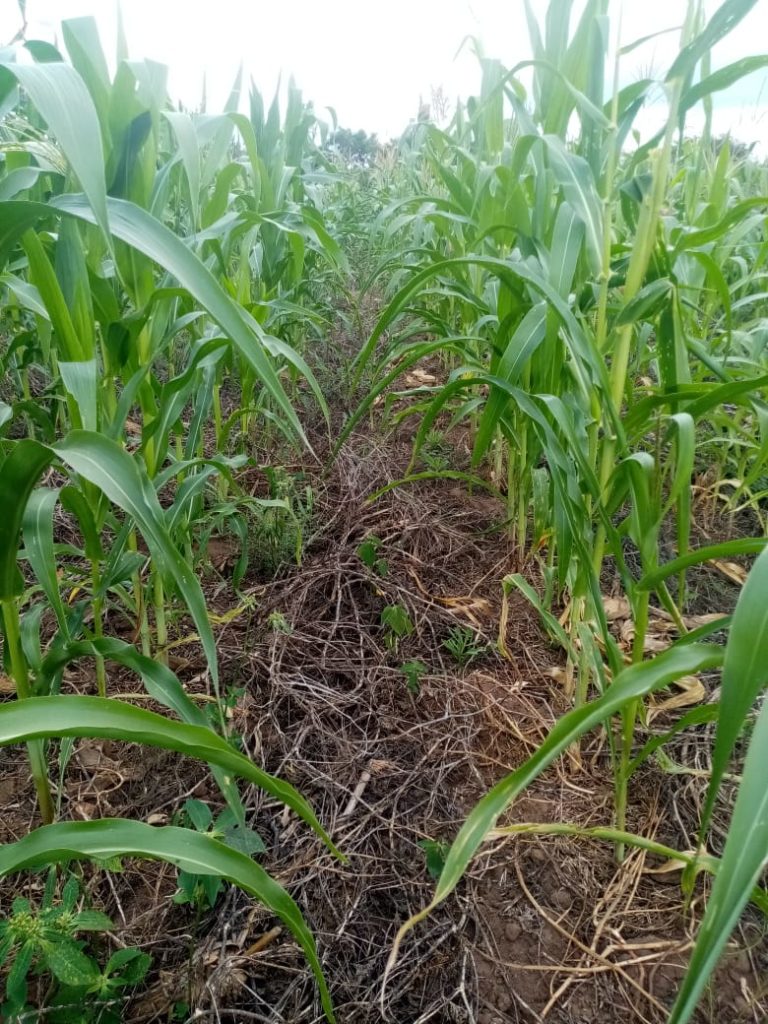Juliana leads us through patches of wilting maize crops under the hot, Kenyan sun.
It hasn’t rained for months and the air is dry. We walk past patches of small, wilted bean stocks that gently sway in the hot breeze.
Suddenly, we turn a corner behind Juliana’s thatch-roofed home and enter a lush, green patch of land brimming with healthy crops. She proudly surveys a crop of maize and beans that have flourished against the odds. This food will not only feed her hungry family, but it will also go to the local market where she will sell it and make more money than she has ever seen. This patch of lush, green land is nothing short of a miracle.

For years, Juliana struggled to grow enough food for her family. Each day was a struggle, especially during the lean season when crops wouldn’t grow in the dry Kenyan soil. The rainy season was becoming shorter and harder to predict, and the small plots of land she owned were losing precious layers of nutrient-rich topsoil every year.
When Juliana heard about the conservation agriculture program ran by Fadhili, our local church partner, she was curious to learn more about new ways to farm. She had seen the negative effects of the changing climate on her conventional farming practices, and was determined to find a way to provide for her family.
After attending workshops from Fadhili, Juliana learned new farming techniques like minimum ground tillage, planting cover crops, and intercropping. She set out to practice what she had learned on 1000 m² (a quarter of an acre) of her land.

The results she saw were amazing! Compared to her withering plots of land that used conventional agricultural methods, her conservation agriculture crops of maize and beans flourished despite the lack of rainfall and planting them later in the growing season. The crops were growing faster, retaining much more water despite the dry climate. She was even able to grow more crops per square metre compared to her other plots of land. Can you imagine what this must have felt like for a woman who had been toiling for years trying to feed her family?
Despite a changing climate and dry, arid conditions, Juliana is able to grow 2-3 times more food thanks to the training she received. She no longer has to rely on handouts and is working toward lifting her family out of the cycle of extreme poverty and chronic hunger.
Farmers like Juliana wouldn’t be able to receive this life-changing training without the generous support of our donors. By partnering with the local church in Kenya, thousands of women like Juliana are working toward a brighter future where hunger will be a thing of the past. Your support will empower women and men as they learn new, practical ways to feed their families and lift themselves out of poverty.
